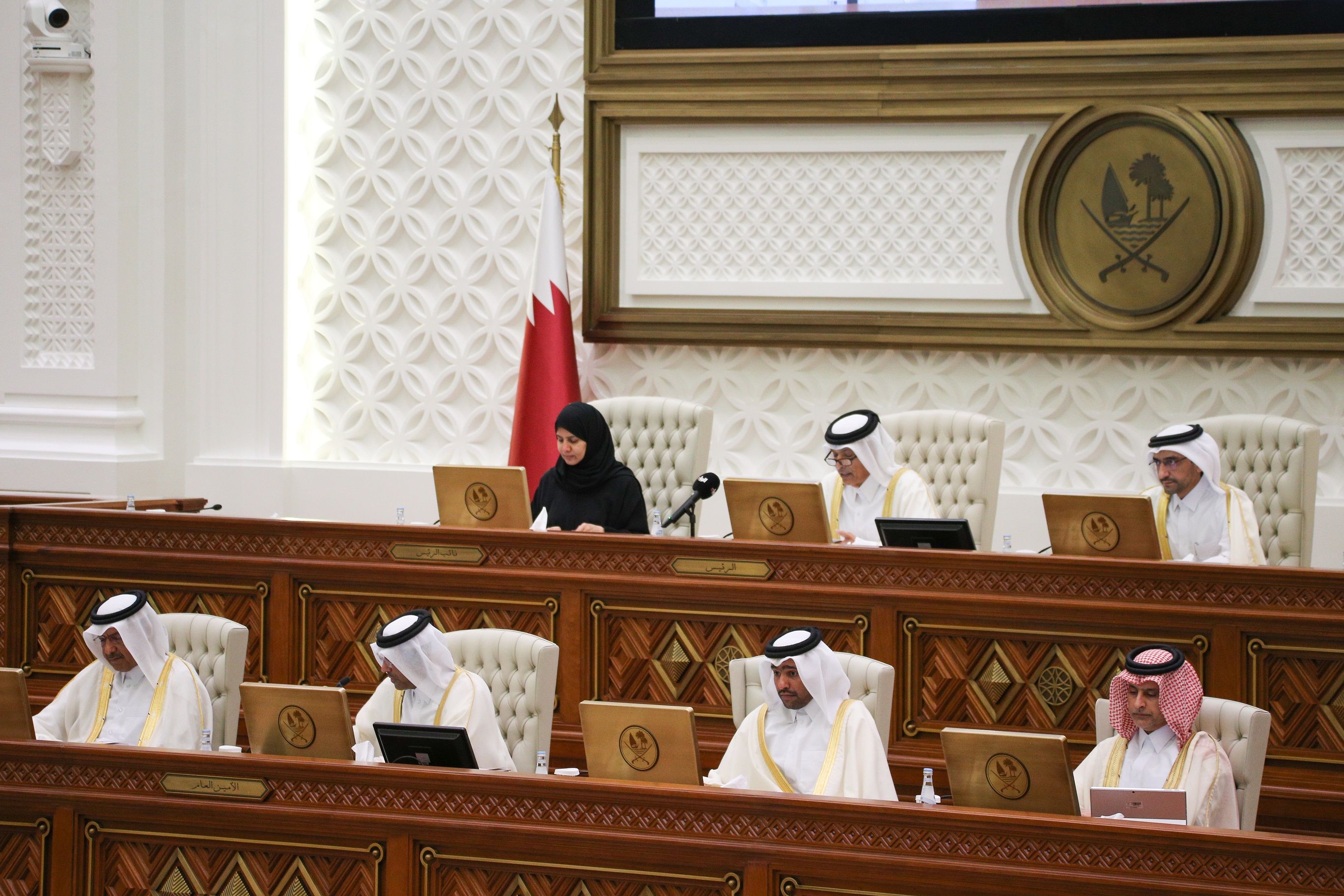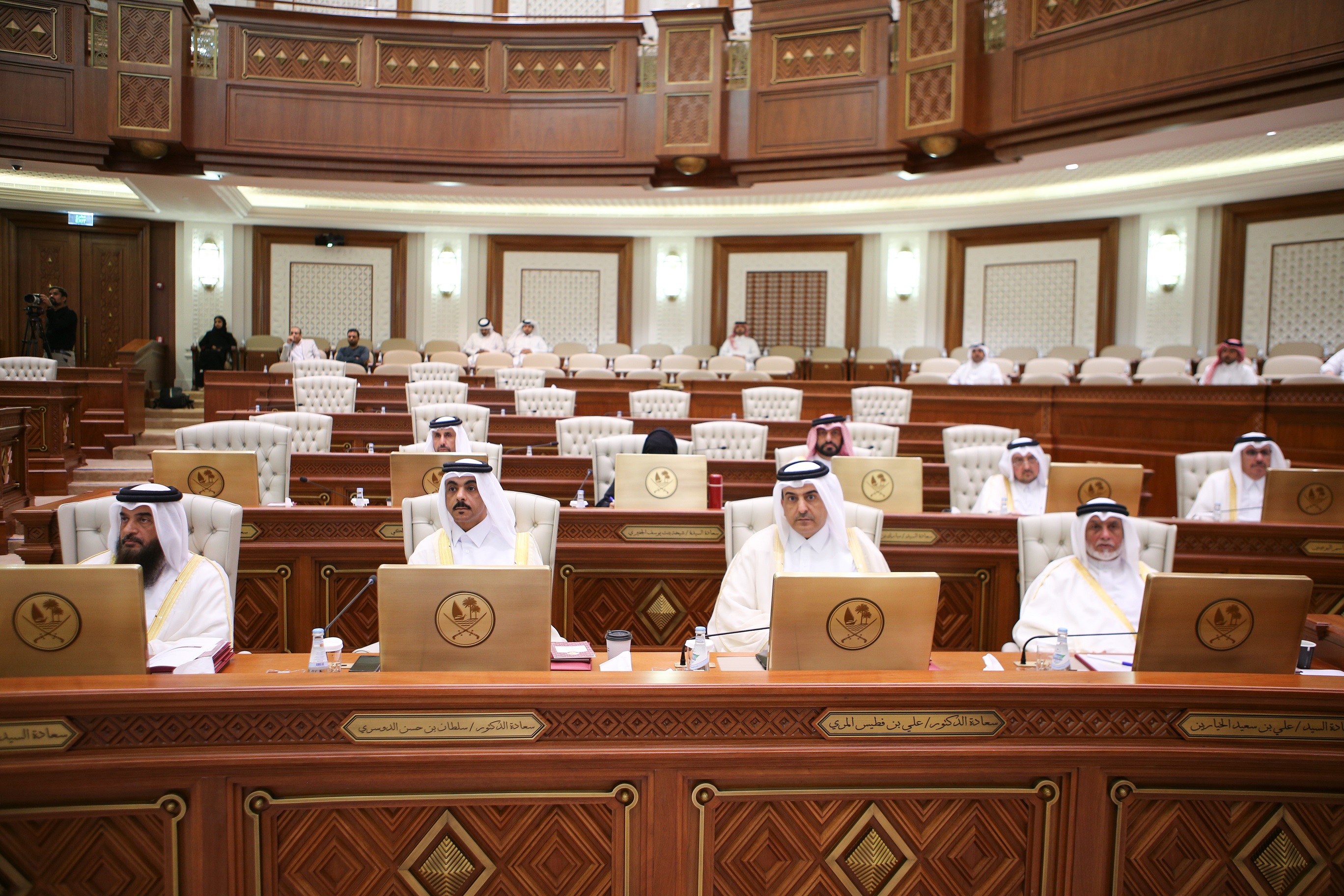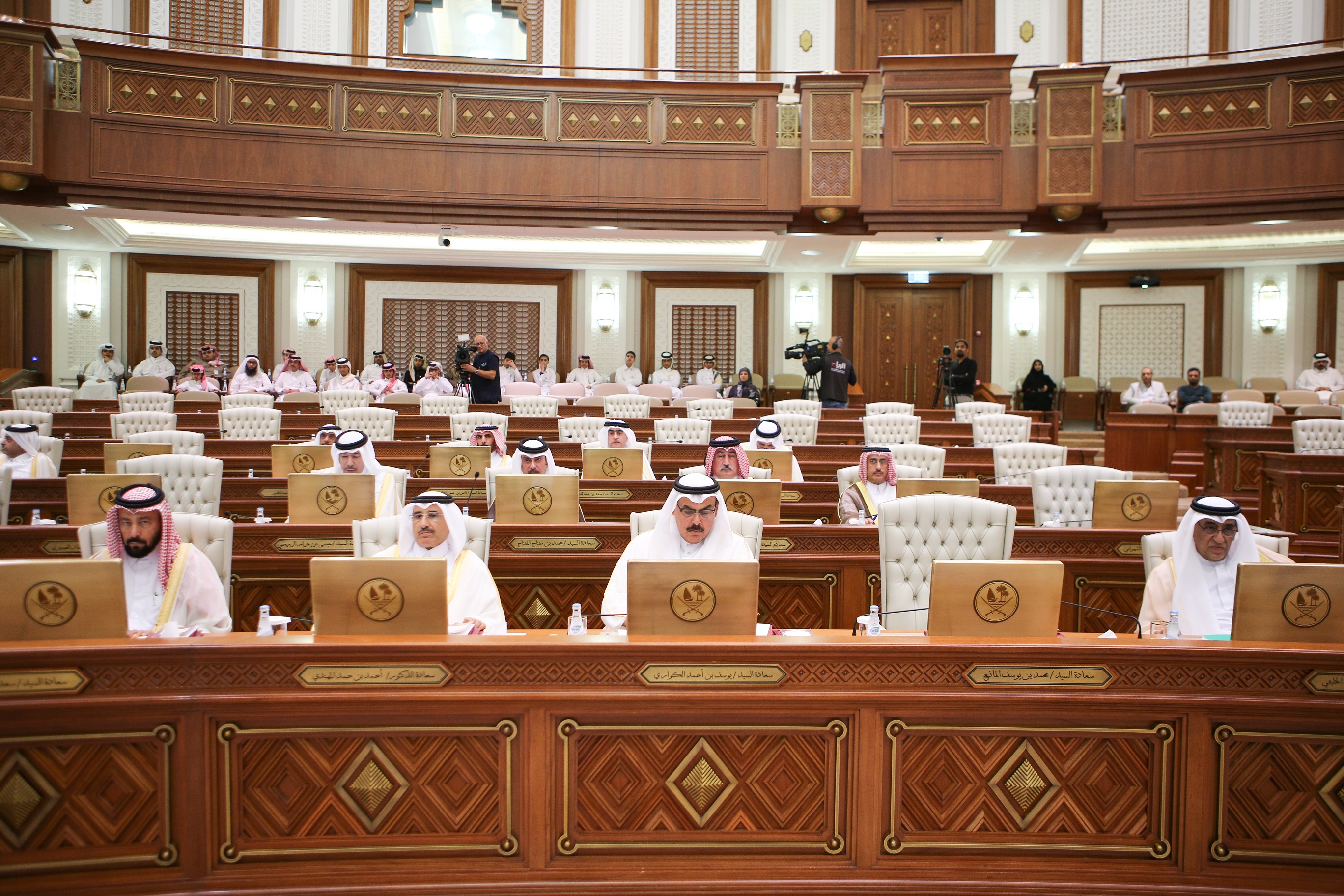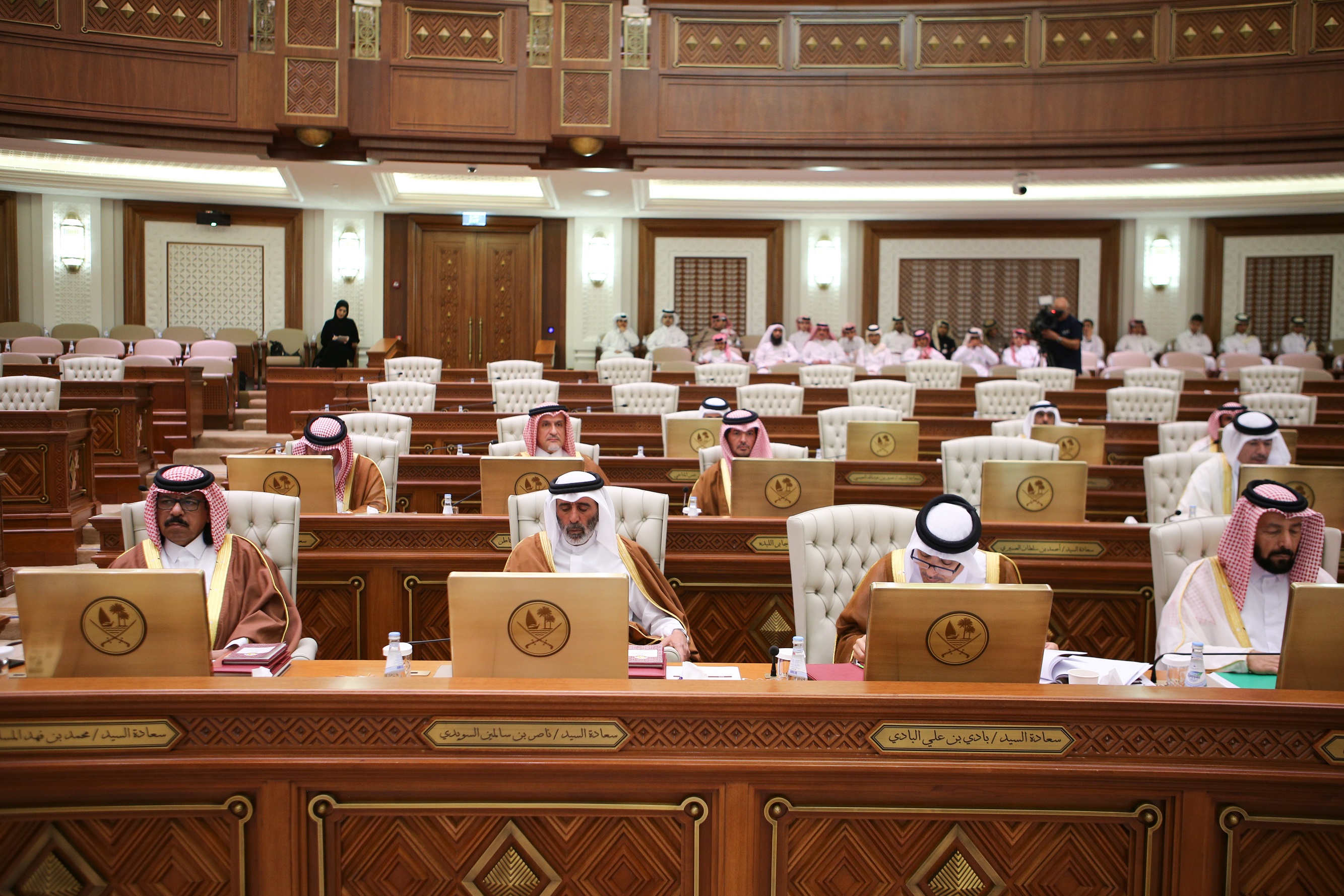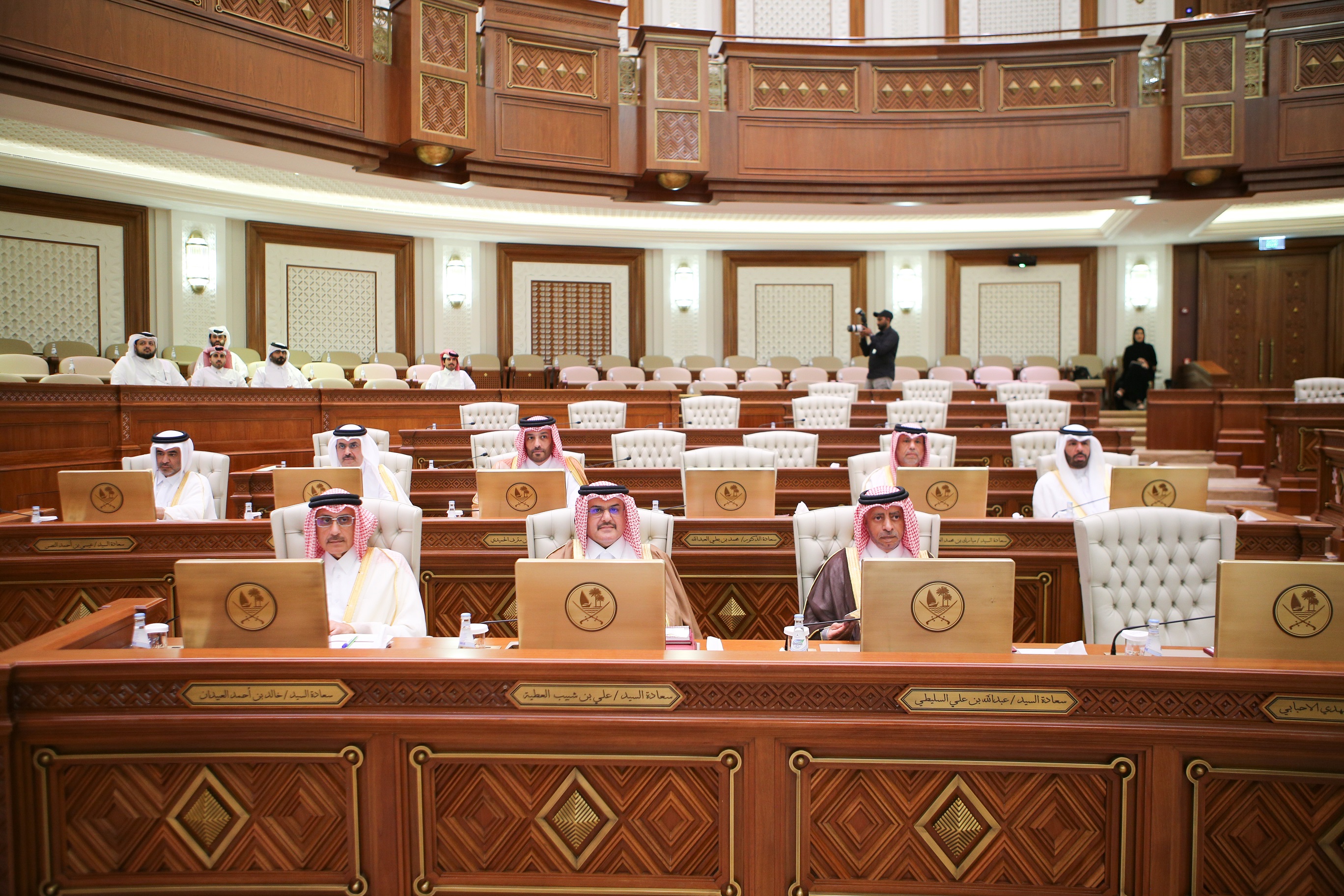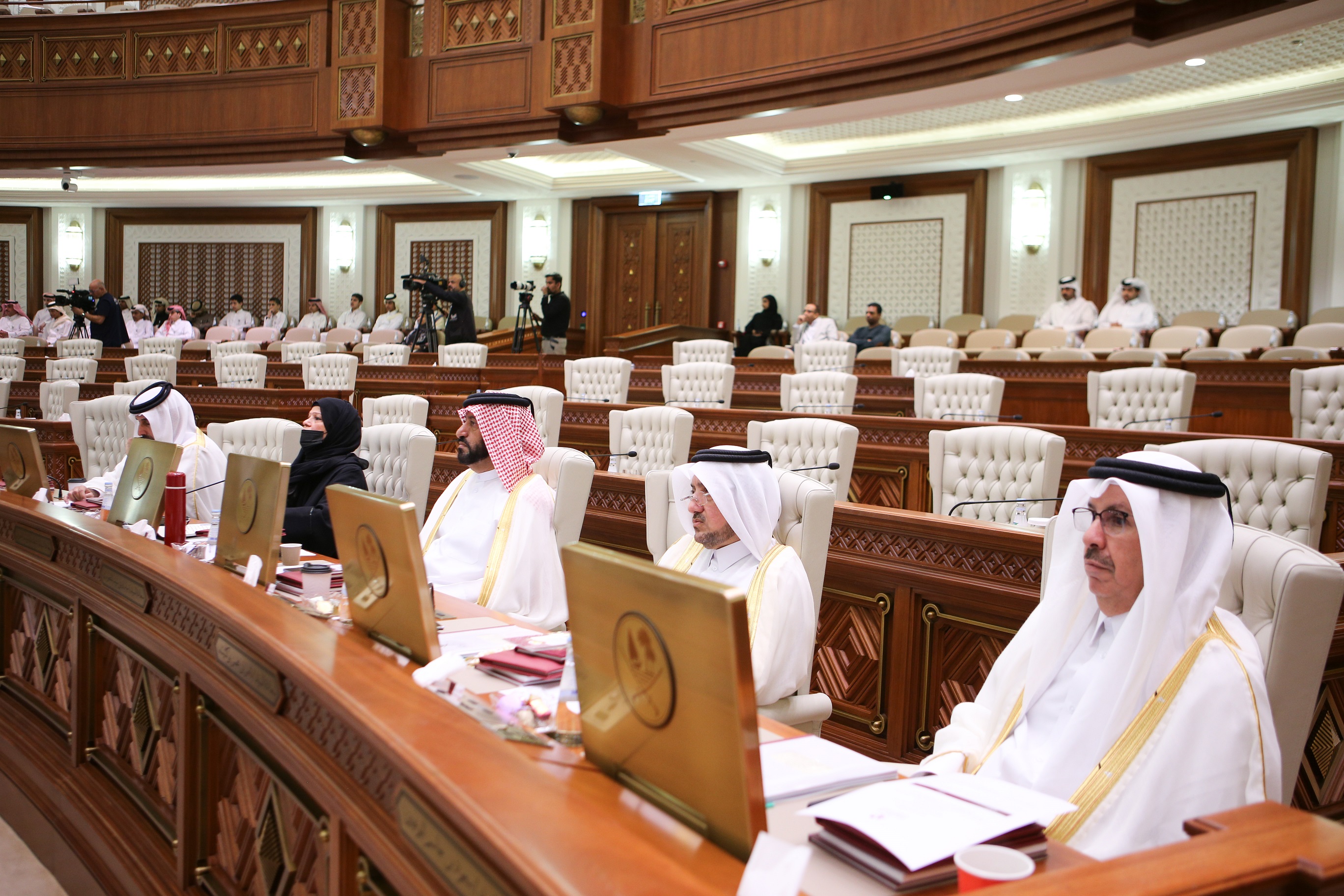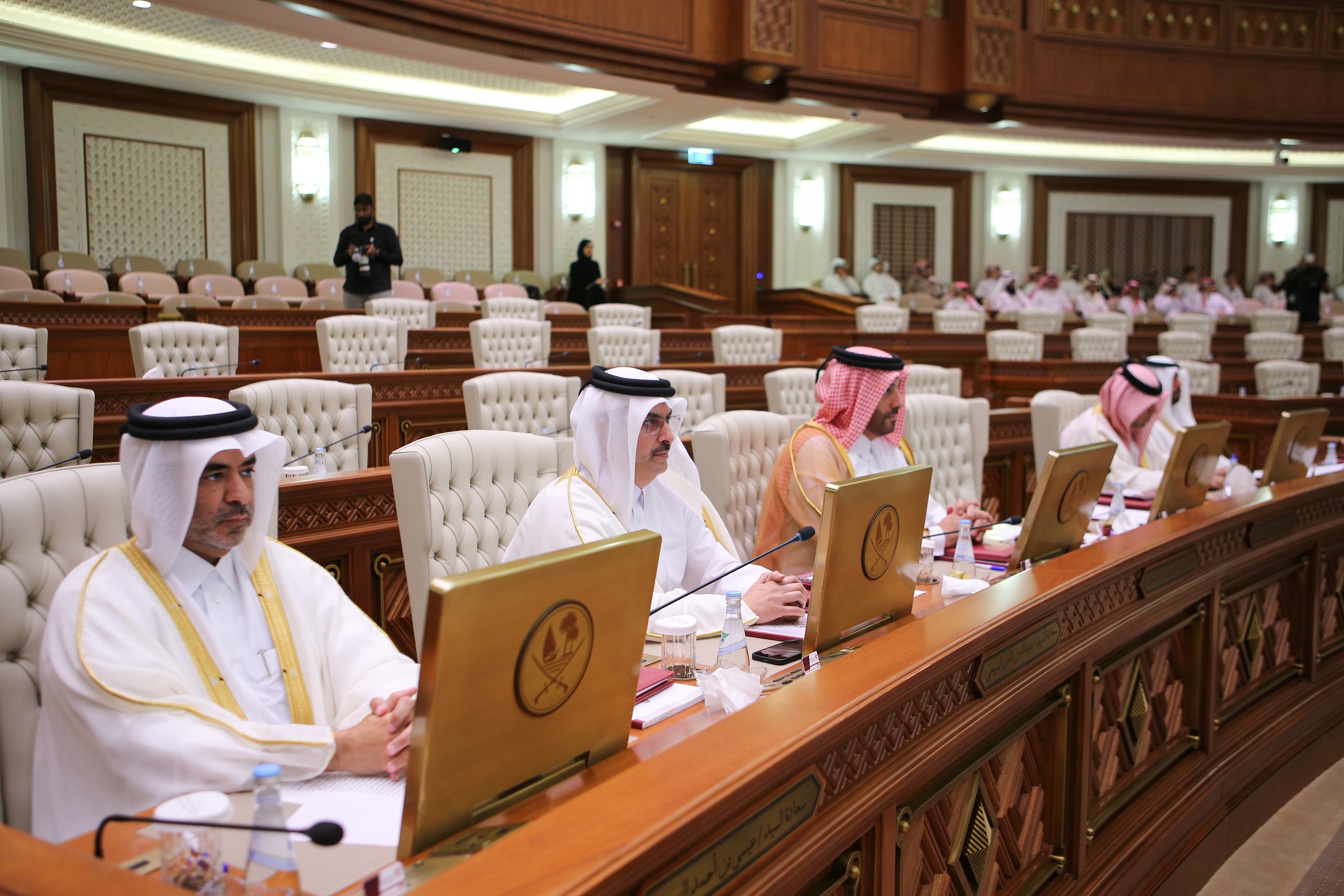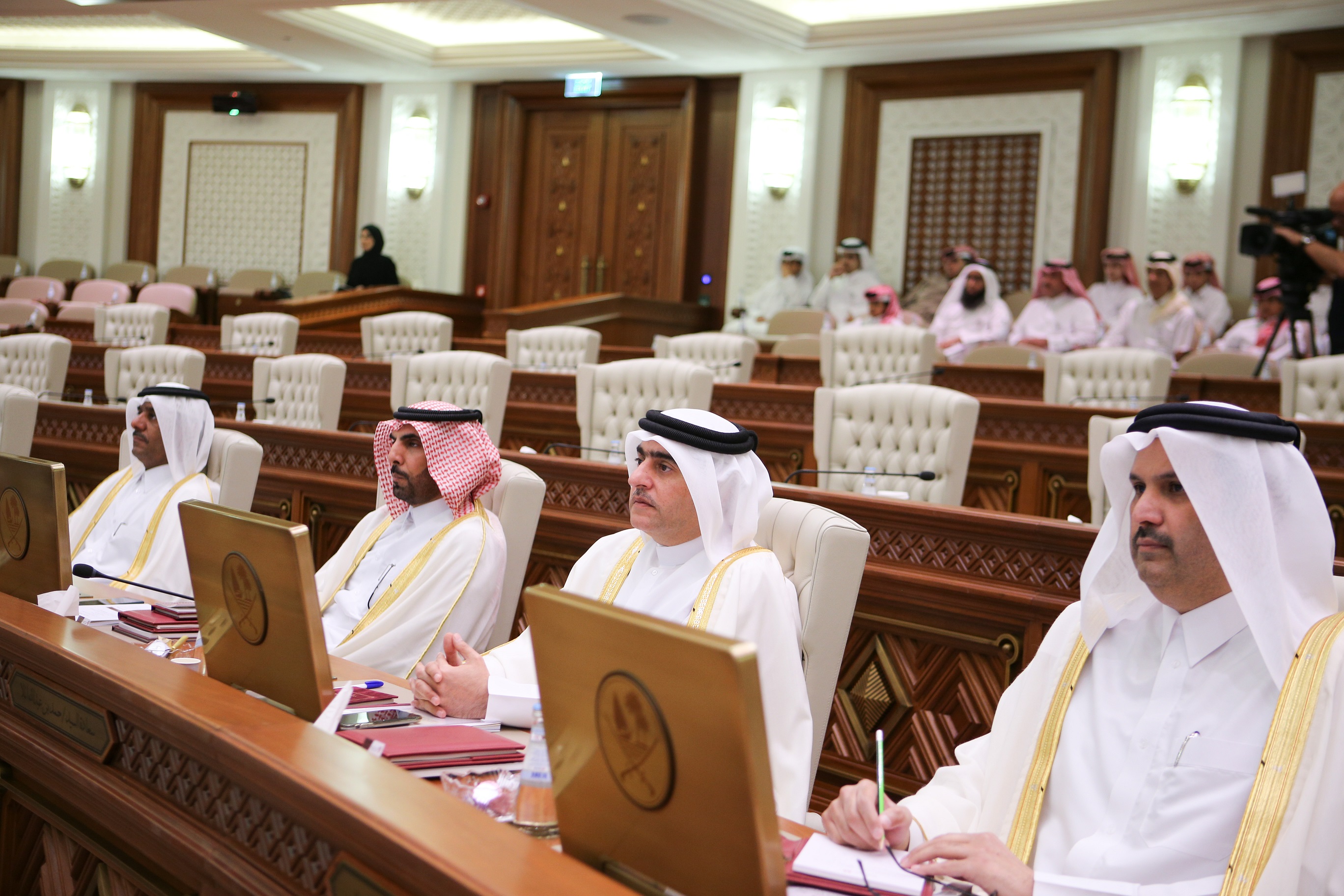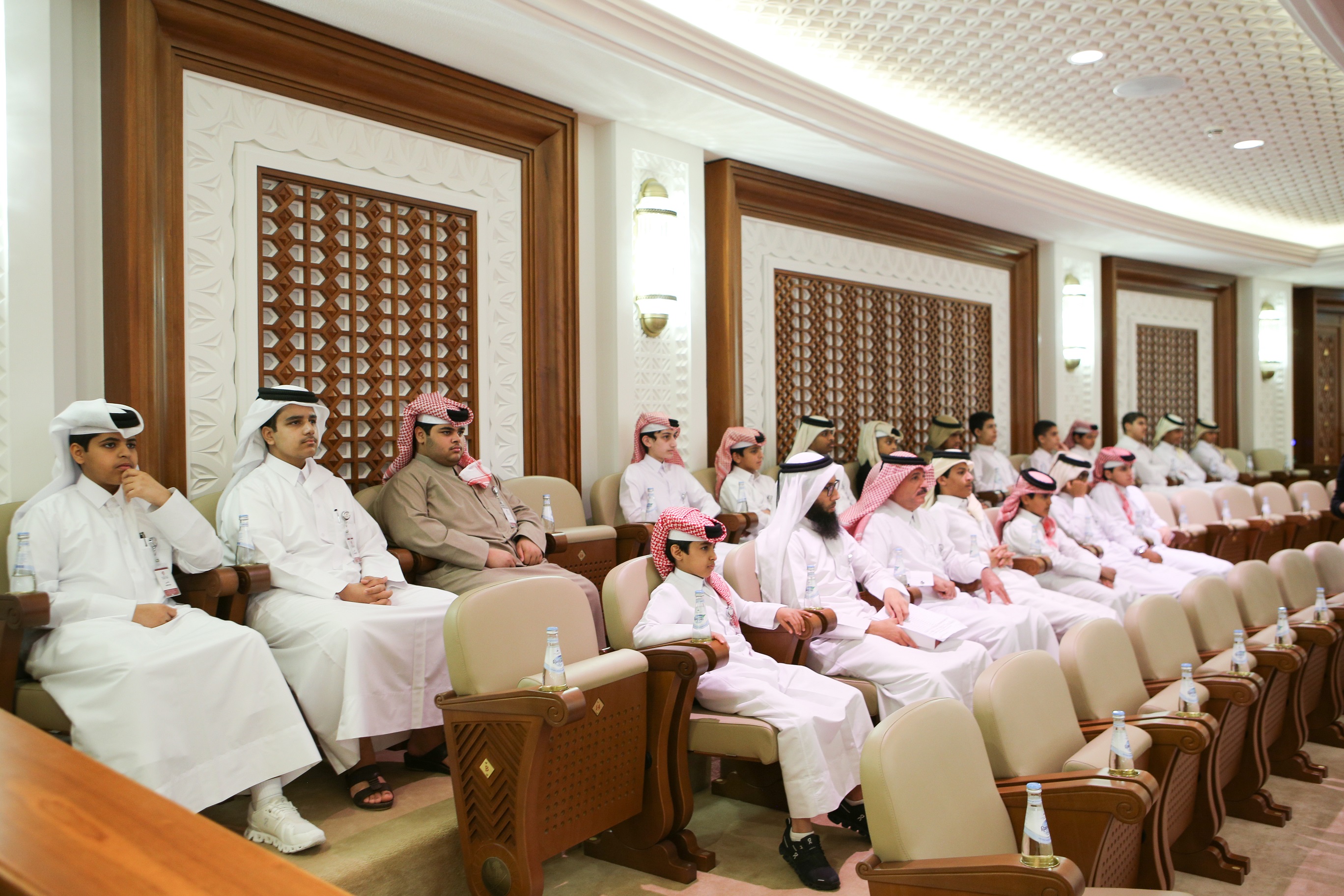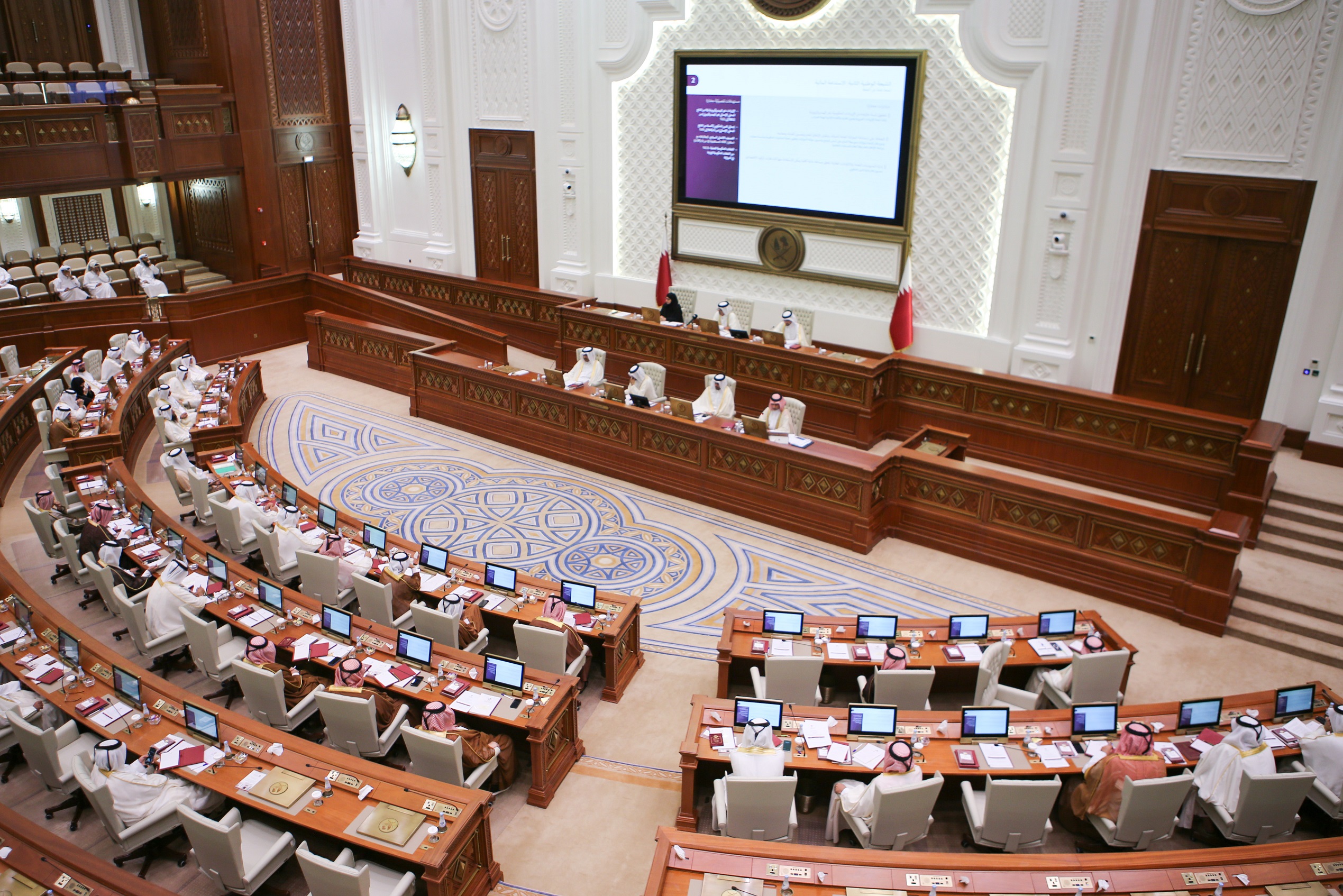Shura Council Welcomes Results of Amir of Kuwait's Visit, Takes Note of 3rd National Development Strategy
26 February 2024
The Shura Council held on Monday its regular weekly meeting at Tamim bin Hamad Hall under the chairmanship of HE Speaker of the Council Hassan bin Abdullah Al Ghanim.
At the outset of the meeting, HE the Speaker of the Council welcomed, on his behalf and on behalf of the Council's members, the results of the state visit paid by HH Amir of the State of Kuwait Sheikh Meshal Al-Ahmad Al-Jaber Al-Sabah to the country last Tuesday, stressing that the discussions held by HH the Amir Sheikh Tamim bin Hamad Al-Thani and his brother the Amir of the State of Kuwait will undoubtedly contribute to deepening the bonds of brotherhood and joint cooperation between the two sides.
The Council appreciated the keenness of HH the Amir and his brother, HH Amir of the State of Kuwait, to support the distinguished relations between the two countries and the two brotherly peoples, in a way that contributes to supporting and strengthening joint Gulf action, noting that the great popular welcome for the visit reflects the strength of the deep-rooted historical relationship between the two sides.
On the other hand, the Council welcomed the country's hosting of the Web Summit Qatar 2024 that brings together thousands of entrepreneurs, investors, technology sector leaders and experts from all over the world to discuss the latest developments in technology and innovation.
The Council praised the country's keenness to host such events, which contribute to launching many new initiatives aimed at developing the business environment in the technology sector in the country, and opening new horizons to attract international companies wishing to expand in this sector, while hailing the participation of 100 local startup companies in the summit.
The Council expressed its disappointment that the UN Security Council failed to issue a resolution for a ceasefire in the Gaza Strip, stressing that the credibility of international law is at stake and is facing a test that depends on the Security Councils position regarding the Israeli aggression on the Palestinian territories.
The Council also expressed deep regret at the failure of the international system to protect civilians in the Gaza Strip, denouncing the double standards in dealing with the tragic situation in the Strip, and warning of the consequences of its continuation on security and stability in the region and the world.
After reading the items of agenda and assenting to the minute of the previous meeting, HE the Speaker of the Shura Council and Their Excellences the members welcomed the presence of HE Minister of Justice and Minister of State for Cabinet Affairs Ibrahim bin Ali bin Issa Al Hassan Al Mohannadi and HE Assistant to the President of the Planning and Statistics Authority (PSA) Mohammed Abdul Aziz Al Nuaimi to apprise the council of the prominent strategic priorities and the national outcomes of the third National Development which is considered the final phase towards achieving the Qatar National Vision 2030.
The council lauded the efforts being made by the esteemed government, alongside other state authorities to enforce the national development strategies and achieve the Qatar National Vision 2030, based on the directives of HH the Amir Sheikh Tamim bin Hamad Al-Thani.
Within this context, HE the Speaker of the Shura Council commended the top priority the wise leadership gives to planning to achieve stability and development and live up to its obligations towards achieving the United Nations Sustainable Development Goals, underscoring the outstanding position of the State of Qatar at the regional and global levels.
For their part, HE the Minister of Justice and Minister of State for Cabinet Affairs and HE the Assistant to the president of the PSA discussed the core priorities of the third National Development Strategy, its objectives and goals, methodology and mechanisms for its implementation and interim evaluation, as well as the expected results to ensure the achievement of the Qatar National Vision 2030 goals, in addition to figuring out the nature of challenges that faced the implementation of the first and second national development strategies, along with the efforts made to address them and the lessons learned.
In this framework, HE the Minister of Justice and Minister of State for Cabinet Affairs highlighted the legislative system prepared by the Council of Ministers General Secretariat in coordination with a number of ministries to implement the third National Development Strategy, indicating it is divided into major themes and outcomes of the plan, chiefly the themes of economic development, financial sustainability, manpower and community cohesion.
The presentation before the council included the core underpinnings of the Qatar National Vision 2030, the three national development strategies, the most consequential phases of the implementation of the first and second national development strategies, as well as the most prominent objectives of the third National Development Strategy.
The presentation highlighted that the third National Development Strategy is based on seven strategic outcomes, namely the sustainable economic growth, financial sustainability, future-ready manpower, cohesive community, high-quality living, environmental sustainability, and outstanding government institutions. The strategy primarily seeks to build a sustainable economic model through expansion in gas production, boosting the growth of non-oil sectors, increasing manpower productivity by 2 percent annually, creating and developing highly skilled jobs, in addition to reinforcing competitiveness and innovation and supporting corporate excellence to accelerate the transition to a knowledge-based economy to achieve the goals of the Qatar National Vision 2030.
The presentation underscored the interest of the strategy in helping the private sector lend the impetus to economic growth, upgrade business environment and encourage effective engagement of national companies in the critical fields. The financial sustainability the third National Development Strategy intends to achieve is meant for bolstering the stability, safety, and flexibility of the public budget in the long term, by setting a framework of medium-term public budgets that are more sustainable and capable of resisting changes.
The presentation focused on the fact that empowering the citizens and qualifying them for the business market are one of the major pillars the strategy intends to achieve through supporting the education sector and upgrading the training programs by drawing high talents to meet the requirements of the business market.
The presentation stated that the strategy seeks to ensure that highly skilled workers make up 46 percent of the total workforce with Qataris constituting no less than 20 percent in the private and joint sectors.
It stressed the strategy's interest in preserving authentic values, strong family ties and cohesion, enhancing national identity, responsible citizenship and cultural enrichment, and building a harmonious local society capable of facing the challenges imposed by external factors and developments, highlighting the strategy's support for all societal groups.
The presentation explained that creating a high-quality life is achieved through excellent health care, security, public safety and ease of life, making Qatar one of the best countries for family life.
It also stressed that the State of Qatar's first and second national development strategies achieved important strides in this direction, culminating in high-level achievements that should be preserved and developed.
It pointed out that the environmental sustainability sought by the strategy is achieved through ambitious goals of rationalizing the use of natural resources, protecting ecosystems, controlling the level of greenhouse gas emissions, and building capacity and resilience to confront future environmental threats.
Regarding the strategic goal of 'distinguished government institutions', the presentation explained that the strategy aims for the State of Qatar to become a world-class government services provider to citizens, residents, companies, and institutions, and a leader in the field of effectiveness, efficiency, and transparency of governance, indicating that at least 90 percent of government services had been completely automated.
The presentation also discussed the State of Qatar's achievements in the Second National Development Strategy 2018-2022, despite the abnormal circumstances it faced at the beginning, most notably, the oil prices fluctuation and the economic repercussions of the Covid-19 pandemic.
Their Excellencies Shura Council members appreciated the countrys efforts under HH the Amir Sheikh Tamim bin Hamad Al-Thani's leadership to achieve development goals in accordance with Qatar National Vision (QNV) 2030, noting the tireless efforts of all state agencies aiming to achieve this.
They also praised the wise leadership's vision in developing strategies and systematic plans to achieve development goals and enhance the well-being of citizens, in accordance with best practices, and the positive impact of planning and follow-up, which contributes to achieving goals, preserving gains, and supporting the optimal use of resources.
The Shura Council members stressed the need to establish appropriate mechanisms and tools to follow up on the implementation of the National Development Strategy, to achieve its desired goals, highlighting the importance of flexibility in its implementation, and developing alternative measures to overcome the obstacles and challenges.
They noted that the Third National Development Strategy should consider population balance as one of its pillars, pointing in the same context to the importance of socialization as one of the pivotal pillars in implementing the strategy.
They stressed the need to develop and expand the circle of domestic and foreign investment, and to establish realistic executive mechanisms to qualify national cadres and provide them with the highest skills to face the challenges of the labor market, and enable them to contribute effectively and strongly to the national development process.
They stressed the importance of interim appraisal during the strategy implementation process, and continuous review of all sectoral strategies, rationalizing them, and directing them in accordance with developments and challenges posed by regional and international crises and global transformations.
They affirmed their keenness to support the country's efforts to achieve the Third National Development Strategy goals, in pursuit of achieving the QNV 2030 goals.

